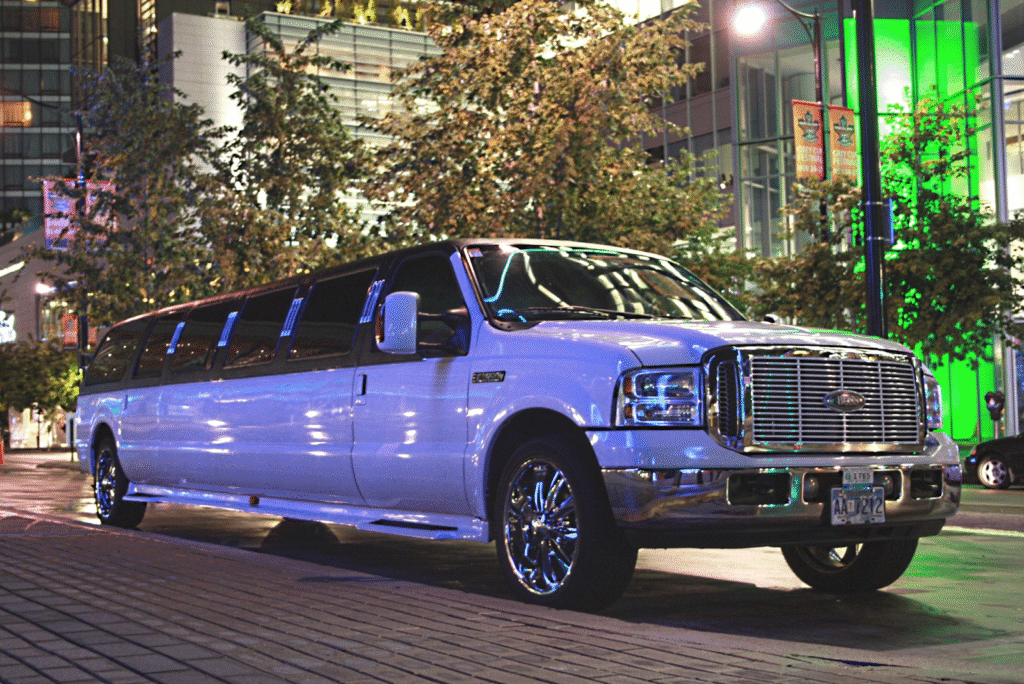When the city quiets down and Boston’s nightlife starts to fade, getting home at night can feel like a challenge. The crowd is thinner, the streets are calm, and the usual transport choices are no longer at your fingertips. Yet, the city still moves. You just have to know where to look and what to expect from each choice. Boston is known for its strong public transportation system during the day, but late at night, the story changes. The schedule shortens, routes pause, and riders are often left figuring out how to reach home safely and on time. Let’s explore the practical options that actually exist at that hour and how each one measures up when comfort, safety, and cost all matter.
Public Transit: Limited but Still Valuable
Boston’s MBTA, often called “the T,” is the heartbeat of the city’s transit system. It connects every corner of Greater Boston during the day, but after midnight, the rhythm slows down. Most subway and bus services wrap up shortly after 1 a.m., leaving very few routes available around night.
Still, there are exceptions. Some night bus services operate along major corridors, especially on weekends. If you are leaving downtown or near major stations like South Station or Copley, you might catch one of these late-night buses.
However, it relies only on public transit at night. is uncertain. The frequency drops, the wait time increases, and routes may not match your exact destination. For those who finish work late or stay out after events, it’s wise to check the last train or bus schedule before heading out.
Public transport may not always be available, but when it is, it remains the most affordable and environmentally friendly option.
Private Transportation Service
 Boston’s private car services, such as Metro West Car Service, offer a wide range of vehicles suited for individuals and small groups. Whether it’s an airport drop-off, a city-to-suburb transfer, or a direct ride home after an event, this service ensures comfortable travel without the worry of waiting, fare surges, or confusing routes. For frequent travelers and residents who move around the city during late hours, a luxury group transportation provider like Metro West Car Service, located at 910 Boston Post Rd E Unit 220, Marlborough, MA 01752, makes a noticeable difference with over 13 years of exceptional customer service. The company also provides a reliable Charter Bus Rental Service in Boston, ideal for corporate events, large family trips, or group travel across Massachusetts. It not only saves time but also turns unpredictable late-night travel into a dependable experience every time. What sets private transportation apart is the balance of safety, comfort, and reliability. During those quiet late hours when public stops are nearly empty, having a professional chauffeur who follows your schedule and knows Boston’s routes becomes more than convenient—it becomes peace of mind.
Boston’s private car services, such as Metro West Car Service, offer a wide range of vehicles suited for individuals and small groups. Whether it’s an airport drop-off, a city-to-suburb transfer, or a direct ride home after an event, this service ensures comfortable travel without the worry of waiting, fare surges, or confusing routes. For frequent travelers and residents who move around the city during late hours, a luxury group transportation provider like Metro West Car Service, located at 910 Boston Post Rd E Unit 220, Marlborough, MA 01752, makes a noticeable difference with over 13 years of exceptional customer service. The company also provides a reliable Charter Bus Rental Service in Boston, ideal for corporate events, large family trips, or group travel across Massachusetts. It not only saves time but also turns unpredictable late-night travel into a dependable experience every time. What sets private transportation apart is the balance of safety, comfort, and reliability. During those quiet late hours when public stops are nearly empty, having a professional chauffeur who follows your schedule and knows Boston’s routes becomes more than convenient—it becomes peace of mind.
Ride-Hailing Apps and Taxis: Reliable but Costly
When the T stops running, ride-hailing apps and traditional taxis take the lead. They are available across the city, and booking one from your phone is often the quickest solution.
At night., these services tend to surge in demand, especially near entertainment districts like the Seaport, Fenway, and Faneuil Hall. With more people requesting rides at once, the fare may rise. While you might reach home quickly, you often pay extra for that convenience. Still, for those who value safety and a direct route home, this is one of the most dependable choices. A licensed cab or app-based car service is ideal if you’re carrying valuables or heading to distant areas such as Cambridge, Somerville, or Quincy.
When choosing this option, check the estimated fare before confirming the ride. Some apps allow fare comparison, which helps in avoiding surprises when you arrive at your destination.
Shared Rides and Micro-Mobility: Flexible, with Conditions
 Boston’s streets have seen a rise in shared transport options such as bike shares and e-scooters. These can work for short trips, but at night., their availability depends on your area.
Boston’s streets have seen a rise in shared transport options such as bike shares and e-scooters. These can work for short trips, but at night., their availability depends on your area.
If you are near central neighborhoods like Back Bay or Beacon Hill, you may find bikes or scooters parked nearby. They can be a fast way to cover short distances, but they come with limits. Safety is a big factor, especially when the streets are quiet and lighting is low. For shared car services that let multiple passengers share one vehicle, prices are usually lower, but wait times can increase. Late-night ride-pooling may not always be available if the system detects low demand in your zone.
While these options bring flexibility, they require awareness. Always check if your route is safe for biking or if your scooter app allows late-night operation before depending on it.
Walking or Waiting It Out: Only When Safe
There are times when the simplest option is to wait for the morning rush to start again. If you are in a safe area, staying at a café, hotel lobby, or a 24-hour restaurant until the early trains restart can be more practical than paying a high fare. Walking home may also sound reasonable if your place is close, but safety should always come first. Boston is generally a secure city, yet some streets can feel deserted at that hour. Stay on main roads, avoid dimly lit paths, and walk with a companion if possible.
If you choose to wait, check MBTA schedules for the earliest morning train or bus, and plan your timing around it. You might spend a little longer out, but you can save both money and effort by catching public transit once it resumes.
Transportation Service in Boston
Among all transport options, the MBTA remains Boston’s service. Even though it slows down after midnight, it continues to serve as the backbone of urban travel. Many riders rely on it every night, especially those working late shifts or returning from events. While private cars and taxis fill the gap when MBTA hours end, the system still plays a vital role in the city’s connectivity. Every major improvement or extended service hour directly benefits those late-night travelers who need affordable and structured routes.
Boston officials have been exploring extended weekend hours and safer night travel options. Once those expansions become more regular, it may change how residents and visitors move through the city after midnight.
Smart Tips Before Heading Out
Whether you’re heading home from a concert, a night shift, or a weekend gathering, a little planning goes a long way.
- Know your last transit time: The MBTA app and website list final train and bus departures for each line.
- Keep backup options ready: Save a taxi number or have a ride-hailing app pre-installed.
- Avoid empty stops: Choose well-lit, populated areas when waiting for any late-night ride.
- Check fares in advance: Some apps show price ranges that help you decide if waiting is worth it.
- Carry essentials: Keep your phone charged, a payment method handy, and your ID with you.
Being prepared not only saves you stress but also ensures your safety and comfort during late hours.
Final Thoughts
Finding your way home in Boston at night. takes more awareness than effort. The city offers several paths, but each has its own balance of comfort, cost, and security. The MBTA remains the most dependable core system during normal hours, while taxis and ride-hailing apps fill the gap when trains rest. Shared rides, bikes, or simply waiting can all make sense depending on your distance and surroundings.
The smartest travelers in Boston are those who plan ahead, respect their safety, and keep realistic expectations about what late-night transport offers. The options exist, but knowing which one fits your moment is what makes the difference between a restless night and a peaceful ride home.







